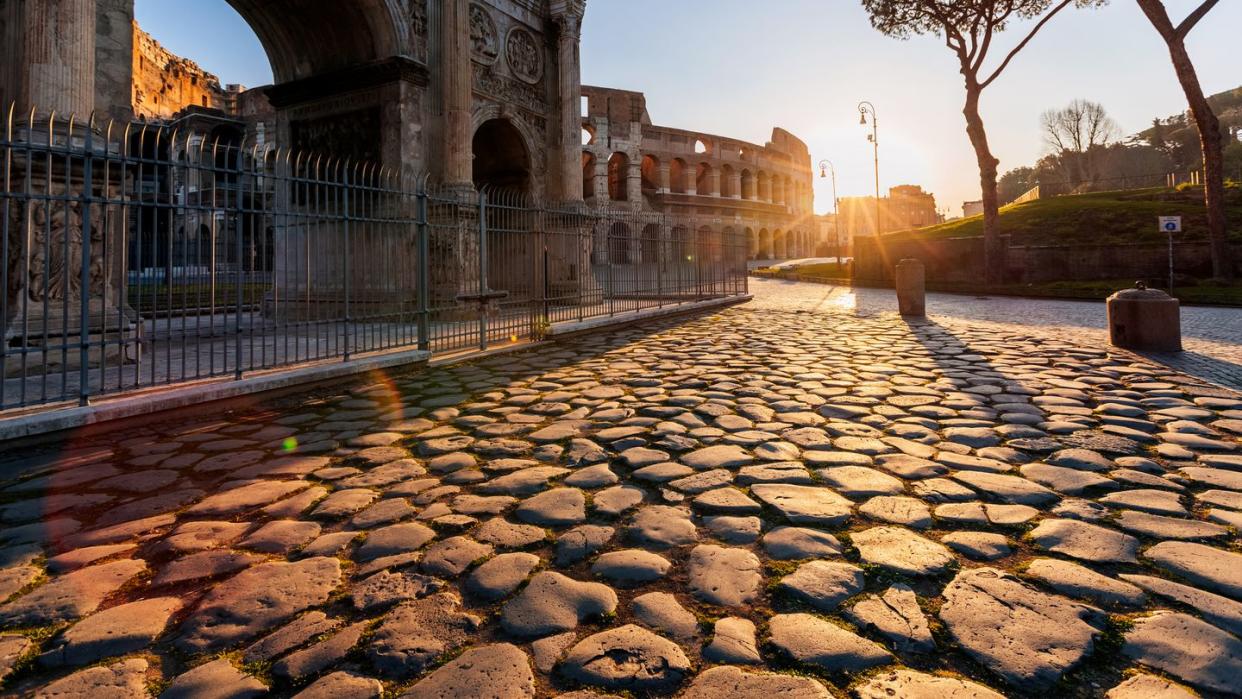Construction Workers Renovated a Road—and Accidentally Uncovered a Roman Emperor’s Garden

- Oops!Something went wrong.Please try again later.
During a construction project in Rome, crews found a 2,000-year-old terraced riverbank structure that likely belonged to the Roman emperor Caligula.
The ruins, which overlooked the bank of the Tiber River, featured a colonnaded portico amidst a large garden area.
An inscription on a lead pipe allowed for the dating of the complex to Caligula’s reign from 37 to 41 AD.
Preparations for the Vatican’s Jubilee Year 2025 celebration turned into a much longer trip through time when crews found the remains of a Roman Empire-era garden directly overlooking the bank of the Tiber River.
Italy’s culture ministry called the excavation “an interesting garden arrangement,” according to Wanted in Rome. The arrangement consisted of a travertine wall terracing the river, the foundation of a colonnaded portico, and a large open area that experts determined was a garden.
Archaeologists made the discovery amid a project to pedestrianize the major thoroughfare Piazza Pia in preparation for the jubilee events.
According to the ministry’s report on the garden arrangement, a lead water pipe that archaeologists found among the ruins bore the name of the garden’s owner. Based on the inscription that reads “C(ai) Caesaris Aug (usti) Germanici,” experts credit the site to Caligula, the Roman emperor from 37 to 41 AD and son of Germanicus and Agrippina the elder.
Ancient literary documents seemingly confirm that Caligula owned a riverside garden. A section in Jewish historian Philo of Alexandria’s “Embassy to Gaius” explains that Caligula welcomed a group of Alexandrian Jews in the Garden of Agrippina, which is described as a vast garden overlooking the Tiber and separating the river from a monumental portico. Sound familiar?
The garden was probably part of Germanicus’ luxurious residence, which Agrippina the elder inherited from him. Naturally, after her death, ownership fell to Caligula. Experts found that the site underwent various renovations since Caligula’s reign, which could be seen in slight changes in architecture.
The possible Garden of Agrippina wasn’t the only new discovery at Piazza Pia. In fact, archaeologists were working to relocate a fullonica—an ancient Roman laundry service—that they uncovered when they found the garden ruins. Crews also found terracotta relics adorned with mythological scenes, which could have initially been used for decorating garden structures and then reused to cover the sewers of the fullonica, helping further tell the story of ancient riverbank gardens fit for emperors.
You Might Also Like

